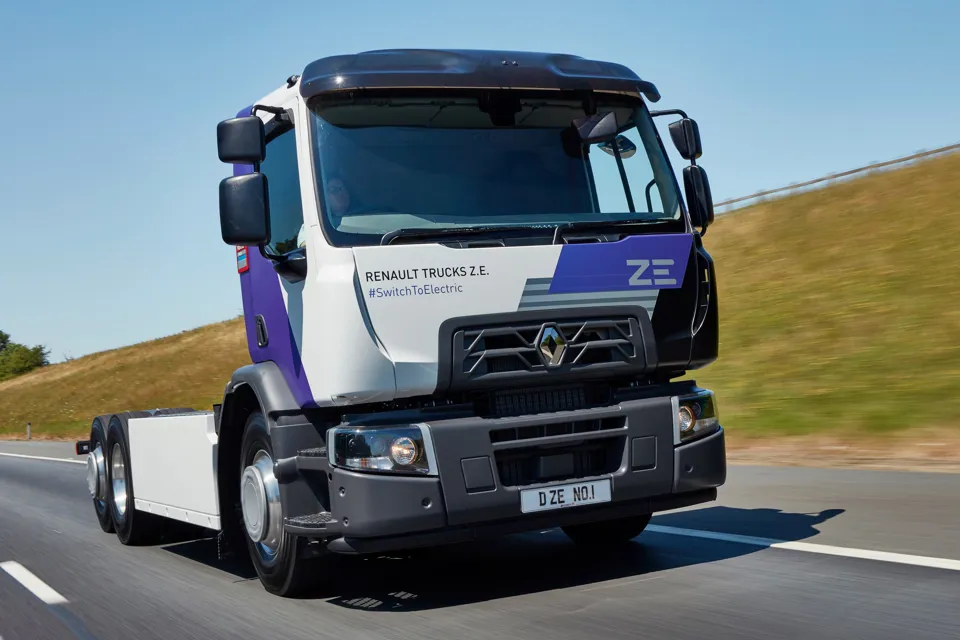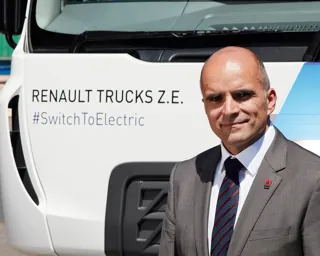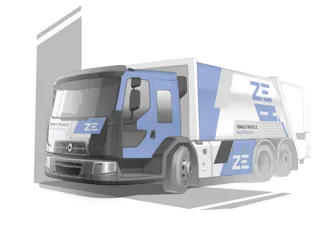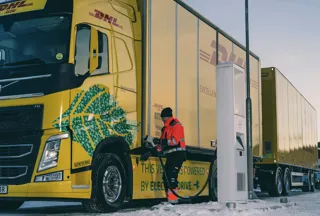Renault Trucks has outlined its plans to offer a fully-electric model in each segment by 2023.
It has also pledged to become carbon-neutral within 30 years.
Renault Trucks says battery-electric and fuel cell electric power will be crucial to achieve this “major transformation” towards carbon-free transport. As trucks have a lifespan of at least ten years, all trucks manufactured by 2040 will run without fossil fuels.
"Electric mobility is the pillar of our strategy and we aim to lead the field," said Bruno Blin, president of Renault Trucks. "We're aiming for 35% of our sales to be electric in 2030. By 2040, all our vehicle ranges will be 100% fossil-free."
In March 2020, Renault Trucks began series production of its second generation of electric vehicles at the Blainville-sur-Orne plant.
Its electric range spans from 3.1 to 26 tonnes, comprising the Renault Trucks D ZE, D Wide ZE and the Renault Trucks Master ZE.
Preparations are underway to market a ZE tractor to meet the needs of regional and inter-regional transport, from 2023. An all-electric offer designed for urban construction will also be available to order by this date.
During the second half of the decade, Renault Trucks will be able to offer a range of electric trucks powered by hydrogen fuel cells, mainly for demanding and heavy long-haul operations.
To help its customers accelerate their energy transition, Renault Trucks has set up a new sales organisation dedicated to electric mobility.
Renault Trucks will benefit from the work carried out by the Volvo Group's new development unit dedicated to medium-tonnage vehicles. Renault Trucks will also capitalise on the partnerships developed by Volvo Energy, the Volvo Group's new entity dedicated to the supply, second life and recycling of batteries, as well as to charging solutions.
As for the development of battery packs specifically for heavy goods vehicle applications, it will benefit from the strategic alliance formed by the Volvo Group and Samsung SDI.























Login to comment
Comments
No comments have been made yet.